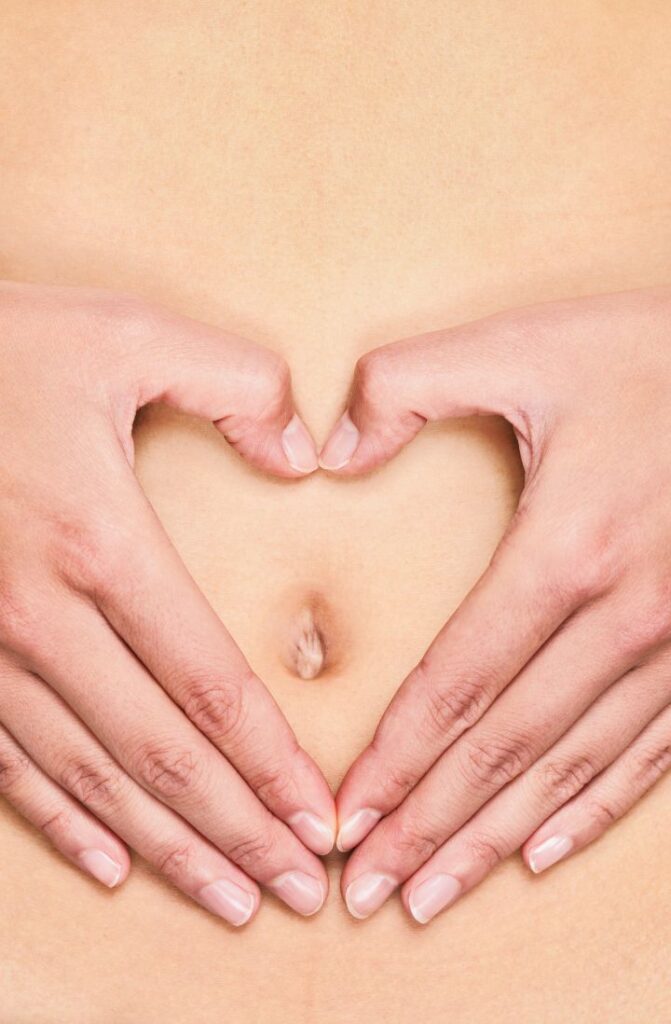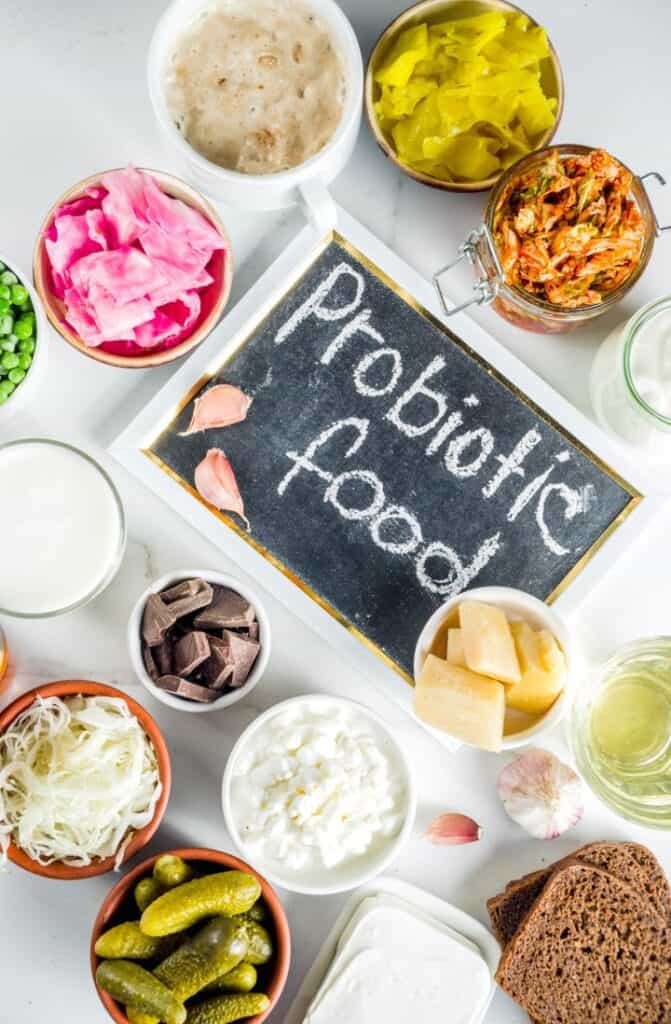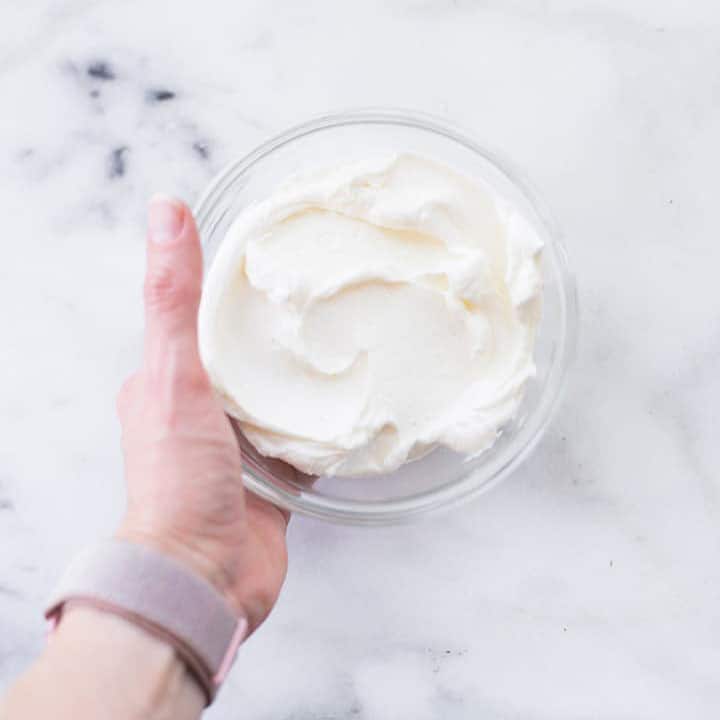Probiotics are live microorganisms, primarily bacteria and some yeasts, that provide numerous health benefits when consumed in adequate amounts. These microorganisms are often called "good bacteria" because they can positively influence your health, particularly your digestive system and overall well-being.
The Importance of Gut Health
Gut health, also known as gastrointestinal health, refers to the well-being of the digestive system, including the stomach, small and large intestines, and the diverse community of microorganisms residing within it. A healthy gut is very important to overall wellness beyond just the actual gut, so probiotics for women are very important.
Probiotics restore and maintain a balanced microbial ecosystem within your body, primarily in the gut. This balance is crucial for optimal health because it helps keep harmful pathogens in check, aids digestion, enhances immune health, and supports various other physiological processes.
The Role of The Gut
Your gut plays a pivotal role in breaking down food, extracting essential nutrients, and delivering them to the body's cells. When you have a healthy gut, this ensures efficient digestion and nutrient absorption. On top of that, a significant portion of the immune system resides in the gut. So, having a balanced gut microbiome helps regulate the immune response and can protect the body from infections and illnesses. To learn more about the gut, watch this video.
It may seem crazy, but emerging research has linked the gut-brain connection, indicating that gut health can influence mental well-being. If you have an imbalanced gut microbiome, it could contribute to mood disorders, like anxiety and depression. Gut bacteria even regulate metabolism and body weight. This means that an unhealthy gut can lead to weight-related issues and metabolic disorders.
Keeping your gut microbiome well-balanced can help control inflammation, which is important because inflammation is a factor in many chronic diseases, such as autoimmune disorders and heart disease. Keeping inflammation down can also help you combat skin conditions like eczema. Also, keep in mind that some gut bacteria are involved in metabolizing hormones. This is important because an unhealthy gut can cause a disruption in hormonal balance and potentially lead to hormonal issues.

The Microbiome and Women's Health
The human body hosts a vast ecosystem of microorganisms, which are collectively known as the microbiome. This ecosystem resides on various surfaces and within different organs. One of the most critical areas where the microbiome plays a pivotal role in women's health is the gut and the vaginal microbiomes. Which is another reason probiotics for women are so important.
Understanding the Gut Microbiome
The gut microbiome is a complex community of trillions of microorganisms, including bacteria, viruses, fungi, and other microbes, that live within the digestive tract. As previously mentioned, it plays a vital role in breaking down food, extracting nutrients, and regulating various bodily functions.
In women, the gut microbiome is closely linked to hormonal balance, metabolism, and immune system regulation. When an imbalance in the gut microbiome of women occurs, known as dysbiosis, it can have far-reaching effects on women's health, potentially leading to issues such as hormonal imbalances, digestive disorders, and even mental health challenges.
The Vaginal Microbiome
The vaginal microbiome is a specialized microbial community in the female reproductive tract. It consists predominantly of Lactobacillus species, which help maintain an acidic vaginal pH and prevent the overgrowth of harmful pathogens. A healthy vaginal microbiome is essential for maintaining vaginal health and preventing pesky infections, like yeast infections and bacterial vaginosis. Many women do not think about how important probiotics are for women in relation to vaginal health.
Impact on Overall Well-being
Both the gut and vaginal microbiomes have a profound impact on a woman's overall well-being. They contribute to digestion, immune function, hormonal regulation, and mental health. When these microbiomes are in balance, they support optimal health and vitality.
On the other hand, imbalances or disruptions in these microbiomes can lead to various health issues. For example, an unhealthy gut microbiome can contribute to digestive problems, while an imbalanced vaginal microbiome can increase the risk of infections and discomfort.

Common Women's Health Issues Related to the Microbiome
Believe it or not, several common women's health issues are closely linked to the microbiome. While most women are aware of these potential health issues, they do not necessarily relate them to probiotics and make the connection that desire to avoid these things is one of the reasons probiotics for women are so important.
Here are some examples of health issues linked to the microbiome:
- Yeast Infections: An overgrowth of Candida yeast in the vaginal microbiome can lead to yeast infections, causing itching, discomfort, and discharge.
- Bacterial Vaginosis: An imbalance in the vaginal microbiome can result in bacterial vaginosis, characterized by a fishy odor and unusual discharge.
- Hormonal Imbalances: The gut microbiome can influence hormone metabolism, potentially contributing to hormonal imbalances that affect menstrual cycles, fertility, and menopausal symptoms.
- Digestive Disorders: An unhealthy gut microbiome may contribute to digestive issues like irritable bowel syndrome (IBS), constipation, or diarrhea.
What Are Probiotics?
You have likely gathered by now that probiotics are live microorganisms, primarily bacteria and some yeasts. These specific microorganisms offer various health benefits when ingested in sufficient quantities. These "good" bacteria are similar to the beneficial microorganisms naturally found in the human digestive tract. Introducing probiotics into your system can help support and restore the balance of your gut microbiome.
Types of Probiotic Strains
There are several different strains of probiotics, each with unique characteristics and potential benefits.
- Lactobacillus: This group of bacteria is often found in the digestive, urinary, and genital systems. Lactobacillus strains are known for promoting gut health and are commonly used in probiotic supplements and fermented foods.
- Bifidobacterium: These bacteria predominantly reside in the colon and help maintain a balanced gut microbiome. They are associated with improving digestion and immune function.
- Saccharomyces boulardii: This yeast strain is known for its ability to combat harmful pathogens in the gut and support digestive health.
- Streptococcus: Certain strains of Streptococcus bacteria have been linked to oral health, while others are used in probiotic formulations for their potential benefits.
- Escherichia coli (E. coli): While some strains of E. coli can be harmful, others, such as E. coli Nissle 1917, have been used as probiotics to promote intestinal health.
Sources of Probiotics
Probiotics can be found in certain supplements and in various foods when prepared a certain way.
- Probiotic Supplements: These are capsules, tablets, or powders that contain concentrated probiotic strains. They are available in health food stores and pharmacies and offer precise doses of specific probiotics. While many of these products are shelf-stable, keep in mind that some do require refrigeration. Do your research when trying to determine the best probiotics for you.
- Fermented Foods: Fermented foods naturally contain live probiotics. Common examples include yogurt, kefir, sauerkraut, kimchi, kombucha, and miso. Even foods like properly fermented sourdough products can contribute to a healthier gut. Incorporating these foods into your diet can be an enjoyable way to introduce probiotics.
- Dairy Products: Many dairy products, such as yogurt and kefir, are fortified with probiotic strains like Lactobacillus and Bifidobacterium.
- Fermented Vegetables: Foods like pickles and fermented vegetables are rich in probiotics and can be a valuable addition to your diet.

Fermented Foods and Their Benefits
Fermentation is a natural process involving carbohydrate breakdown by microorganisms like bacteria and yeast. Fermented foods not only provide probiotics but also offer other advantages.
- Improved Digestibility: Fermentation can make certain foods easier to digest, which is particularly beneficial for individuals with digestive issues.
- Nutrient Enhancement: Fermentation can enhance the bioavailability of nutrients in foods, making them more nutritionally valuable.
- Preservation: Fermentation is an ancient preservation method that extends the shelf life of food without the need for artificial additives.
- Diverse Flavors: Fermented foods boast a wide range of flavors and textures, adding diversity to your diet.

Probiotics and Digestive Health
Maintaining optimal digestive health is crucial for overall well-being, and probiotics play a significant role in supporting a healthy gut.
How Probiotics Support Digestion
Probiotics help maintain a balanced microbial ecosystem in the gut by promoting the growth of beneficial bacteria and inhibiting the overgrowth of harmful ones. Having a balanced gut microbiome improves the absorption of essential nutrients from your foods, ensuring that your body receives the nourishment it needs. Probiotic bacteria can also ferment dietary fiber which produce short-chain fatty acids (SCFAs). These fatty acids provide energy for the cells lining the gut and contribute to overall gut health. They may even help regulate bowel movements, reducing the frequency of diarrhea and constipation.
Alleviating Common Digestive Issues
Probiotics have effectively alleviated common digestive issues like IBS, diarrhea, constipation, and IBD. Promoting gut balance may help reduce symptoms of Irritable Bowel Syndrome, such as abdominal pain, bloating, and irregular bowel movements. They may also be beneficial in preventing or reducing the severity of infectious diarrhea, antibiotic-associated diarrhea, and traveler's diarrhea.
Certain probiotic strains may even alleviate symptoms of constipation by improving bowel regularity and promoting a healthier gut environment. Even though probiotics cannot replace medical treatment, some individuals with inflammatory bowel disease report improved symptoms and quality of life with probiotic supplementation.
Tips for Maintaining a Healthy Gut
In addition to incorporating probiotics into your diet, you can do various other things to help maintain a healthy gut. Check out some of the tips and tricks below.
- Dietary Fiber: Consume a high-fiber diet rich in fruits, vegetables, whole grains, and legumes to nourish your gut microbiome.
- Prebiotics: Include prebiotic foods like garlic, onions, leeks, and asparagus in your diet. Prebiotics are non-digestible fibers that feed beneficial gut bacteria.
- Limit Processed Foods: Minimize the intake of processed foods, sugary snacks, and excessive saturated fats, as they can negatively affect gut health.
- Stay Hydrated: Drink plenty of water to support digestion and food movement through the digestive tract.
- Manage Stress: Chronic stress can impact gut health. Practice stress management techniques like meditation, yoga, or deep breathing exercises.
- Exercise Regularly: Physical activity promotes a healthy gut and can aid in regular bowel movements.
- Avoid Antibiotics Unless Necessary: Antibiotics can disrupt the gut microbiome. Only use them when prescribed by a healthcare professional.
- Consult a Healthcare Provider: If you have persistent digestive issues, consult a healthcare provider to rule out underlying conditions and receive personalized guidance.

Probiotics and Women's Reproductive Health
Women's reproductive health is vital to overall well-being and probiotics can significantly support various aspects of it.
Maintaining Vaginal Health
The vaginal microbiome is a complex ecosystem dominated by beneficial bacteria, primarily Lactobacillus species. These bacteria help maintain an acidic pH level in the vagina, creating an inhospitable environment for harmful pathogens. Probiotics, particularly those containing Lactobacillus strains, can assist in preserving this delicate balance and promoting vaginal health.
- Supporting a Balanced Vaginal Microbiome: Probiotics containing Lactobacillus can help establish and maintain a balanced vaginal microbiome, reducing the risk of infections and discomfort.
- Preventing Bacterial Vaginosis (BV): Regular consumption of probiotics may lower the likelihood of developing bacterial vaginosis, a common condition characterized by an overgrowth of harmful bacteria in the vagina.
Preventing and Managing Yeast Infections
Yeast infections, particularly those caused by Candida species, are a common concern for women. Probiotics can be a valuable tool in preventing and managing these infections.
- Balancing Yeast Levels: Probiotic strains like Lactobacillus acidophilus and Lactobacillus rhamnosus can help maintain appropriate yeast levels in the vaginal microbiome, reducing the risk of yeast infections.
- Reducing Severity and Duration: Probiotics may lessen symptoms' severity and duration when taken regularly for those who experience recurrent yeast infections.
Probiotics During Pregnancy and Postpartum
Pregnancy and postpartum periods are crucial for maternal and infant health. Probiotics can offer specific benefits during these stages. Incorporating probiotic-rich foods or supplements into your daily routine under the guidance of a healthcare provider can contribute to a healthier reproductive system and overall well-being for women at all stages of life.
- Pregnancy: Probiotic supplementation during pregnancy may help reduce the risk of gestational diabetes, preeclampsia, and infections. It can also support a balanced gut microbiome, which may influence the infant's developing microbiome.
- Preventing Yeast Infections: Pregnant women are more susceptible to yeast infections due to hormonal changes. Probiotics can be a safe and natural way to prevent and manage these infections during pregnancy.
- Postpartum: Probiotics can help restore gut health after childbirth, particularly for women who have undergone cesarean sections or taken antibiotics during labor.

Probiotics and Immune System Support
The immune system is a complex network of cells and molecules that defend the body against harmful pathogens. Even though probiotics are well known to help the digestive system, they can also support and boost the immune system when you take in the proper dose.
Boosting Immunity with Probiotics
Probiotics contribute to immune system support in several ways. They help maintain a balanced gut microbiome by promoting beneficial bacteria growth; a well-balanced microbiome is essential for a robust immune response. Probiotics also stimulate the production and activity of immune cells, such as T cells and natural killer cells, which play key roles in defending against infections.
If inflammation is an issue for you, you'll be happy to know that probiotics also help regulate inflammation by reducing the production of pro-inflammatory molecules. Excessive inflammation can weaken the immune system. A major plus of a healthy gut lining is that it can act as a barrier against harmful invaders. Probiotics support gut barrier function, which prevents pathogens from entering the bloodstream.
Reducing the Risk of Infections
When you take in a daily probiotic, you may be reducing your risk of infections. Probiotic supplementation has been linked to a decreased risk of upper respiratory tract infections and shorter durations of symptoms. It is also known that consuming strains of Lactobacillus and Bifidobacterium can help prevent and reduce the severity of diarrhea caused by infections.
Probiotics are even effective in preventing and managing vaginal infections like bacterial vaginosis and yeast infections by maintaining a balanced vaginal microbiome.
Probiotics and Autoimmune Conditions
Research into the relationship between probiotics and autoimmune conditions is ongoing. Still, there is evidence to suggest that probiotics may have the ability to reduce disease activity and inflammatory markers in individuals with rheumatoid arthritis. When using probiotics as a complementary therapy, they may help manage symptoms and reduce inflammation in individuals with Crohn's disease and ulcerative colitis. Some studies suggest that early exposure to specific probiotic strains may reduce the risk of developing type 1 diabetes in genetically predisposed individuals.

Probiotics for Hormonal Balance
Hormonal balance is critical for overall well-being, and emerging research suggests that probiotics can support hormonal equilibrium.
The Gut-Hormone Connection
The gut and hormones are intricately linked through a complex communication network called the gut-brain axis. This axis connects the central nervous system to the enteric nervous system in the gut, allowing bidirectional communication between the gut and the brain.
By promoting a balanced gut microbiome, probiotics can influence this communication network and potentially impact hormone regulation. Some gut bacteria are involved in the metabolism of hormones, including estrogen. A balanced gut microbiome may help regulate hormone levels. Gut bacteria can also produce neurotransmitters and hormones influencing mood and stress responses. These can, in turn, affect hormonal balance. If you have an imbalanced gut, it can lead to chronic inflammation, which may disrupt hormonal signaling and exacerbate hormonal imbalances.
Managing PMS Symptoms
Premenstrual syndrome (PMS) symptoms are known to have many symptons, including mood swings, bloating, and cramping. Luckily, probiotics can assist in alleviating these symptoms to some extent because they support hormonal balance. Consuming probiotics may influence the production of neurotransmitters like serotonin, which can help stabilize mood and reduce PMS-related mood swings. The resulting balanced gut microbiome can help regulate digestion and reduce bloating, a common symptom of PMS. Probiotics may also have anti-inflammatory properties that have the potential to reduce the intensity of cramps and discomfort associated with PMS.
Probiotics and Menopausal Health
Menopause is a significant hormonal transition in a woman's life. Luckily, probiotics may play a role in supporting menopausal health because maintaining a balanced gut microbiome helps manage fluctuations in hormones during menopause. This could mean probiotics may reduce symptoms like hot flashes and mood swings.
Probiotics may also enhance calcium absorption in the gut, promoting better bone health. This is crucial during menopause because the risk of osteoporosis increases. Issues like vaginal dryness and discomfort are often associated with menopause, and probiotics can potentially mitigate this issue by preventing infections and maintaining a balanced vaginal microbiome.

Incorporating Probiotics into Your Diet
Integrating probiotics into your daily diet is a simple and effective way to support your digestive health and overall well-being. Probiotics can be found in various foods and beverages, and incorporating them into your meals can be both delicious and nutritious.
Probiotic-Rich Foods
- Yogurt: Yogurt is one of the most popular sources of probiotics. Look for yogurt labeled with live and active cultures containing beneficial bacteria such as Lactobacillus and Bifidobacterium.
- Kefir: Kefir is a fermented dairy or non-dairy beverage that is packed with probiotics, often including a broader range of strains than yogurt.
- Sauerkraut: This fermented cabbage dish is rich in Lactobacillus bacteria and adds a tangy crunch to sandwiches or salads.
- Kimchi: A staple in Korean cuisine, kimchi is a spicy fermented vegetable dish, typically made with Napa cabbage and Korean radishes, that's teeming with probiotics.
- Miso: Miso is a Japanese seasoning made by fermenting soybeans with salt and koji fungus. It is commonly used to make miso soup and adds a savory, umami flavor to dishes.
- Kombucha: Kombucha is a fermented tea beverage that contains a variety of probiotic strains, often Acetobacter and Gluconobacter.
- Pickles: Fermented pickles (not vinegar-pickled) can contain probiotics and offer a zesty crunch to sandwiches or as a side dish.
- Tempeh: Tempeh is a fermented soybean product that is rich in probiotics and protein, making it a versatile addition to vegetarian and vegan diets.
Cooking Tips for Preserving Probiotic Benefits
Avoid High Heat: Probiotics are sensitive to high temperatures, so avoid cooking them at temperatures that may kill the beneficial bacteria. Add probiotic-rich ingredients to dishes after cooking when possible.
Use Raw Varieties: Some probiotic foods, like sauerkraut and kimchi, are available in raw, unpasteurized forms, which preserve more probiotic benefits than their pasteurized counterparts.
Store Properly: Keep probiotic-rich foods refrigerated to slow down the fermentation process and preserve their probiotic content.
Consume Regularly: For optimal probiotic benefits, make probiotic-rich foods a regular part of your diet to ensure a continuous supply of beneficial bacteria to your gut.
Incorporating probiotics into your diet is a delicious and health-conscious choice that can improve digestive health and overall well-being. Experiment with various probiotic-rich foods, try different recipes and enjoy their flavorful and nourishing benefits.

Tips for Incorporating Natural Probiotics Into Your Diet
Yogurt, kimchi, sauerkraut, and kombucha are commonly consumed and easily accessible natural probiotic products that you can easily incorporate into your everyday diet. These fermented food items may have an acquired taste, and not all of them are ideal for everyone, but when used in different preparations, you will likely find one or more options that work for you.
Yogurt
Yogurt is one of the most well-known and easily accessible sources of probiotics. It is made by fermenting milk with beneficial bacteria, typically Lactobacillus bulgaricus and Streptococcus thermophilus. Some yogurt brands also include additional probiotic strains like Bifidobacterium and Lactobacillus acidophilus.
How to Incorporate Yogurt:
- Enjoy Greek yogurt with fresh fruit, honey, or nuts as a standalone snack.
- Use it as a base for smoothies to add creaminess and probiotic goodness.
- Include yogurt in your breakfast by mixing it with granola or oatmeal.
- Use yogurt in salad dressings and marinades for added creaminess and flavor.
Kimchi and Sauerkraut
Kimchi and sauerkraut are traditional fermented cabbage dishes that are rich in probiotics. Kimchi is a staple in Korean cuisine, while sauerkraut originates in Germany. Both are made by fermenting cabbage with various seasonings and beneficial bacteria, primarily Lactobacillus species.
How to Incorporate Kimchi and Sauerkraut:
- Serve kimchi or sauerkraut as a side dish to complement your main meal.
- Add them to sandwiches, burgers, or wraps for a tangy kick.
- Incorporate them into rice or grain bowls for extra flavor and probiotics.
- Experiment with kimchi or sauerkraut in stir-fries for a unique twist.
Kombucha
Kombucha is a fermented tea beverage known for its effervescence and probiotic content. It's made by fermenting sweet tea with a SCOBY (symbiotic culture of bacteria and yeast), which includes various probiotic strains like Acetobacter, Gluconobacter, and more.
How to Incorporate Kombucha:
- Enjoy kombucha as a refreshing beverage on its own or over ice.
- Use it as a mixer in cocktails for a probiotic-infused twist on your favorite drinks.
- Incorporate kombucha into salad dressings or marinades for added flavor complexity.
- Pair it with meals to aid in digestion and enhance the dining experience.

Takeaways
Incorporating probiotics into your diet is a proactive step toward better gut health, a pivotal part of overall well-being for women at every life stage. These beneficial microorganisms in yogurt, kefir, sauerkraut, and other fermented foods contribute to digestive health, immune system support, hormonal balance, and even relief from common women's health issues. Taking a great probiotic blend supplement on a regular basis can even improve skin health!
Whether maintaining a balanced vaginal microbiome, managing PMS symptoms, or supporting menopausal health, probiotics offer a natural and empowering means of enhancing women's reproductive and hormonal well-being. By embracing probiotic-rich foods and following simple cooking tips, women can take control of their gut health and prioritize their overall health and vitality. So, make probiotics a delicious part of your daily routine, and nurture your gut for a healthier and happier you. Your body will thank you.



Comments
No Comments